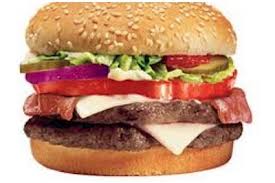 On Tuesday (15th Jan) the Food Safety Authority of Ireland (FSAI) published findings of a study which examined the authenticity of a number of beef and salami products. They tested 27 ‘beef’ burgers, 31 ‘beef’ meal products (cottage pie, lasagna etc), and 19 salami products. Of the burgers 10 (37%) were found to contain horse DNA and 23 (85%) contained pig DNA. In the meals, 21 (68%) contained pig DNA, but all were negative of horse DNA. All of the salami products were found to be negative of horse DNA. The tests were carried out two months earlier, but the FSAI did not release the findings because they wanted to carry out more tests.
On Tuesday (15th Jan) the Food Safety Authority of Ireland (FSAI) published findings of a study which examined the authenticity of a number of beef and salami products. They tested 27 ‘beef’ burgers, 31 ‘beef’ meal products (cottage pie, lasagna etc), and 19 salami products. Of the burgers 10 (37%) were found to contain horse DNA and 23 (85%) contained pig DNA. In the meals, 21 (68%) contained pig DNA, but all were negative of horse DNA. All of the salami products were found to be negative of horse DNA. The tests were carried out two months earlier, but the FSAI did not release the findings because they wanted to carry out more tests.
According to Prof. Alan Reilly, Chief Executive, FSAI “Whilst, there is a plausible explanation for the presence of pig DNA in these products due to the fact that meat from different animals is processed in the same meat plants, there is no clear explanation at this time for the presence of horse DNA in products emanating from meat plants that do not use horse meat in their production process”.
The products containing horse meat came from 3 processing plants, Liffey Meats and Silvercreast Foods in Ireland and Dalepak Hambleton in the UK. ABP, the parent company of Silvercreast in turn blamed their suppliers, saying “We have done nothing wrong here in our view. “We have bought beef product. It appears as though there are equine traces in the product. We operate with EU-approved suppliers. There is substantial testing of those suppliers. In terms of our business we don’t buy horse meat but there has been a system breakdown here”. Horse meat is roughly 1/4 the price of beef, which is being used to explain why it was used.
The contaminated products were on sale in Tesco and Iceland in the UK as well as Lidl, Aldi and Dunnes Stores in Ireland. All products have now been removed from sale, as well as products from Asda, Sainsbury’s and the Co-op which they described as “a precautionary measure”. Tesco today took out adverts in newspapers and posted an apology on it’s website saying “We apologies We and our supplier have let you down and we apologies. So here’s our promise. We will find out exactly what happened and , when we do, we’ll come back and tell you. And we will work harder than ever with all our suppliers to make sure this never happens again.”
The Food Standards Agency (FSA) has been criticized for not identifying the problem sooner, which it said was due to the fact that “horse meat did not pose a threat to health” however, they have promised a review of the traceability of products to be complete by Friday (18th Jan), so watch this space for more info…
*Information for this blog was taken from the BBC, FSA, FSAI and the Telegraph.